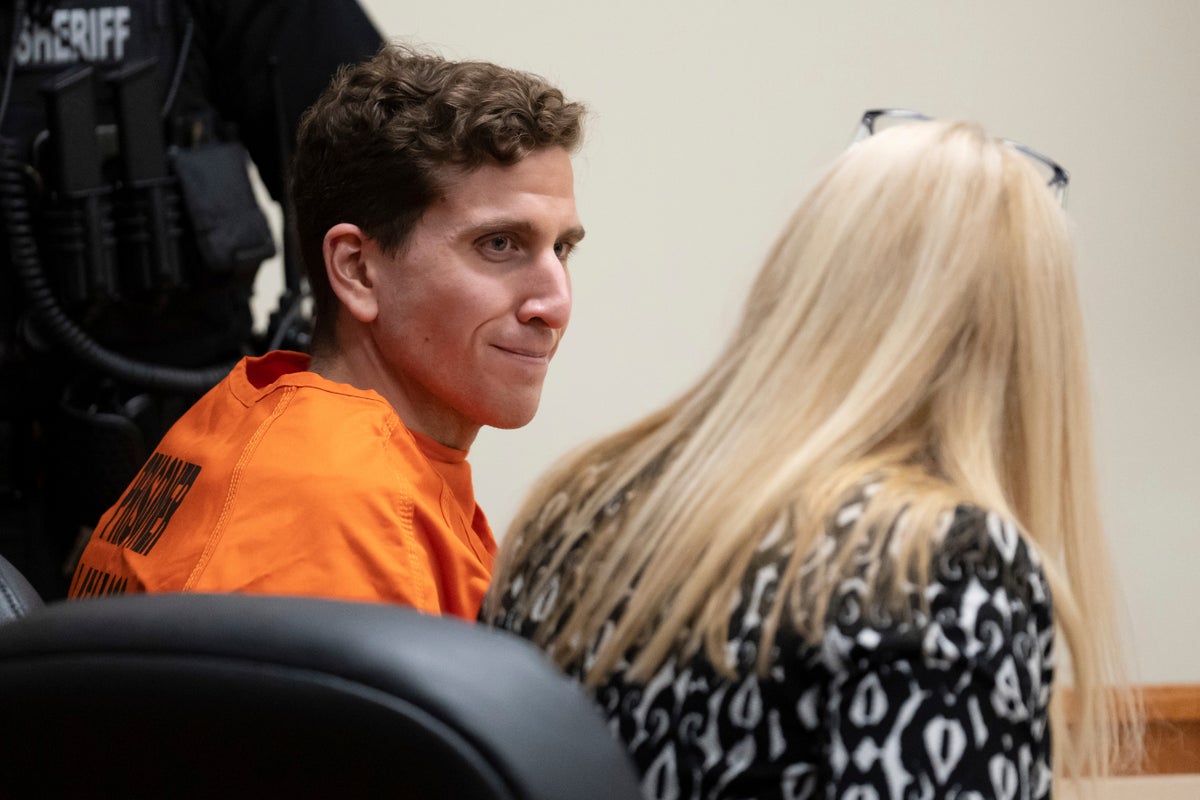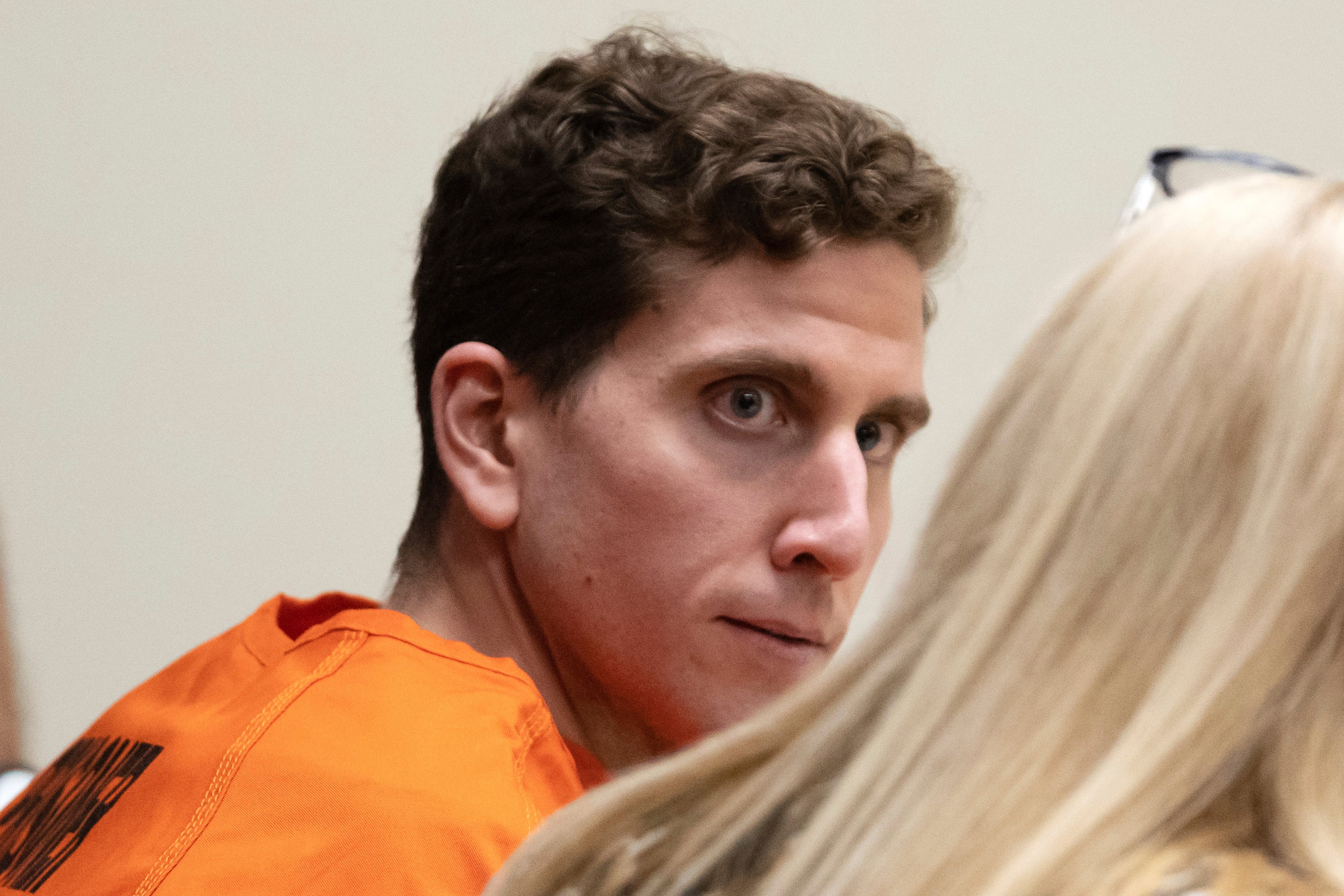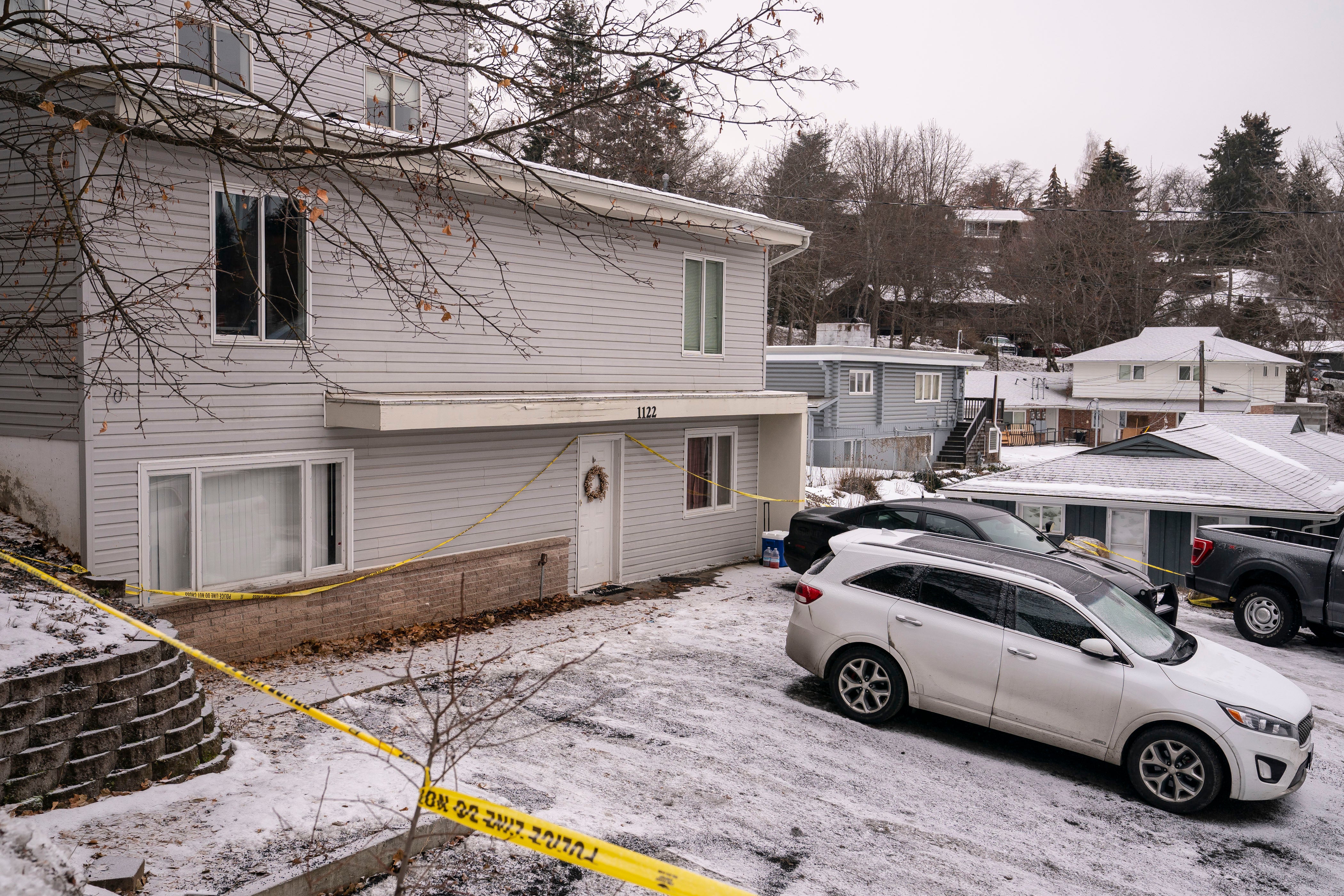
Tinder, DoorDash and Venmo are among dozens of businesses that have been served with search warrants in the University of Idaho murders case.
Court documents filed last week reveal that investigators probing the brutal slayings of Kaylee Goncalves, Madison Mogen, Ethan Chapin and Xana Kernodle have issued warrants to around 40 companies as they pursue murder charges against accused killer Bryan Kohberger.
Any evidence the searches may have uncovered remains unknown as the judge ordered that the warrants remain sealed and redacted.
However, the orders ruling the warrants be sealed did reveal which companies had been issued with warrants.
The businesses range from online dating websites to banks and online payment companies to retailers.
They include: Amazon, American Express, Apple, AT&T, Bank of America, Banner Bank in Spokane, Washington, Block, Inc. (formerly Square, Inc.), Blue Ridge Knives in Marion, Virginia, Charter Communications, Coeur d’Alene Police Department Forensic Lab, Discover Bank, DoorDash, Ebay, Elan Financial Services, Extreme Networks, Google, Idaho Central Credit Union, Idaho Department of Labor, Inland Cellular, KA-BAR Knives, Match Group LLC (owner of Tinder) Meta Platforms (Facebook’s parent company), Moscow Police Department Forensic Lab, Numerica Credit Union, Paypal/Venmo, Potlatch No 1 Financial Credit Union, Reddit, Snap Inc. (Snapshot parent group), T-Mobile, Umpqua Bank, UPS, Wal-Mart, Wells Fargo, Verizon Wireless, Washington State University, Yahoo and Yik Yak.
Some of the companies notified appear more obvious than others.
KA-BAR Knives was served a search warrant, after a KA-BAR knife sheath was left behind by the killer at the scene of the murders. DNA found on the sheath matches Mr Kohberger, according to a criminal affidavit.
Meanwhile, Kernodle received a DoorDash order to the off-campus home just minutes before she was murdered.
While some of the warrants sought information about Mr Kohberger, others sought information about the victims – such as access to their Facebook and Snapchat accounts.
This comes as investigators work to piece together any possible link between the students and their accused killer or what his motive may have been for the quadruple murders.
Several of the warrants were filed back in December – at the height of the investigation into the 13 November murders – but came to light now as the judge ordered for them to remain sealed until further notice by the court.
The judge’s orders all gave the same reasons for keeping the trove of documents sealed.

“The documents contain highly intimate facts or statements, the publication of which would be highly objectionable to a reasonable person,” the orders read.
“The documents contain facts or statements that might threaten the safety of or endanger the life or safety of individuals and disclosure would constitute an unwarranted invasion of privacy.”
While the Idaho search warrants remain sealed, warrants have recently been unsealed over the search on Mr Kohberger’s family home in Pennsylvania.
The warrants reveal that a Glock .40 caliber gun, empty gun magazines, a knife, a pocket knife, black face masks and black gloves were found during a search of the home in Chestnuthill Township, when law enforcement officials carried out an early morning raid on 30 December.
Other items seized included a “book with underlying on page 118,” Mr Kohberger’s phone bills, and a “green leafy substance in a plastic bag .”
A search was executed on Mr Kohberger’s apartment in Pullman and his office at Washington State University (WSU) on the same day.
The unsealed documents reveal that investigators seized a string of items from his home including possible human and animal hair strands, a disposable glove, items with red and brown stains and a computer.
Authorities also took swabs from Mr Kohberger’s car and seized a shovel, gloves and goggles, a bandage and reflective best that were inside.
Mr Kohberger, a 28-year-old Washington State University PhD student, was arrested during the 30 December raid on his family home in Pennsylvania and extradited to Moscow, Idaho, to face murder charges.
He is accused of murdering the four University of Idaho students in a brutal knife attack that sent shockwaves through the small college town.
Back on 13 November, he allegedly entered the off-campus student home that the three young women shared and stabbed to death the four victims.

Two other roommates were left unharmed in the home.
One of the surviving roommates came face to face with the killer – masked, dressed in head to toe black and with bushy eyebrows – as he left the home in the aftermath of the murders.
The victims’ bodies were discovered hours later.
The affidavit, released in January, revealed that investigators believe Mr Kohberger may have stalked the student home in the run-up to the mass murder, with cellphone data placing him around the property 12 times before 13 November.
At the time of the murders, investigators believe Mr Kohberger turned his cellphone off in order to try to avoid detection.
However, cellphone data places him close to the home on King Road at around 9am on 13 November – suggesting that he returned to the scene of the crime just hours after allegedly murdering the four victims at around 4am, the affidavit reveals.
As a criminal justice PhD student at WSU, Mr Kohberger lived just 15 minutes from the victims over the Idaho-Washington border in Pullman. He had moved there from Pennsylvania and began his studies there that summer, having just completed his first semester begore his arrest.
Before this, he studied criminology at DeSales University – first as an undergraduate and then finishing his graduate studies in June 2022.
While there, he studied under renowned forensic psychologist Katherine Ramsland who interviewed the BTK serial killer and co-wrote the book Confession of a Serial Killer: The Untold Story of Dennis Rader, the BTK Killer with him.
He also carried out a research project “to understand how emotions and psychological traits influence decision-making when committing a crime”.
Now, he is facing life in prison or the death penalty for the murders that have rocked the small college town of Moscow and hit headlines around the globe.
He is expected to appear in court for a preliminary hearing on 26 June.







